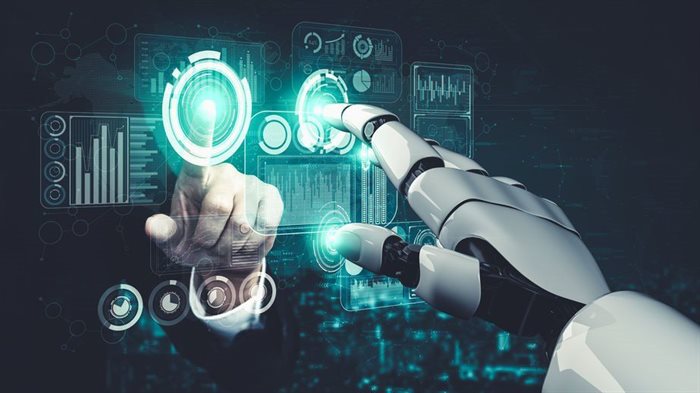Emerging in the late 1990s, artificial intelligence (AI) has since transcended numerous boundaries and accomplished what once seemed impossible. From the voice-activated personal assistants on our smartphones to remote-controlled robot vacuums, AI tools have significantly simplified the lives of millions.

Nonetheless, there remains both enthusiasm and apprehension about the technology’s potential to transform the workforce, as how it will work is still not widely understood by executives at large.
In PwC South Africa’s newly launched report, entitled AI catalysing a workforce revolution, now, we take a closer look at how AI has evolved in recent years, the power it has to transform modern-day jobs, steps on how to enable your organisation’s key people during the AI era, and what to look out for when using AI.
Increased interest and investment in AI
AI has seen exponential growth since 2015 with its various collections of subfields, such as deep-learning neural networks, machine learning, natural language processing modules, and robotics. The Covid-19 pandemic can also be considered a key catalyst that resulted in increased interest and investment in AI and chatbot technologies.
Last year, we saw the launch of several new tools, with an example of one such model, ChatGPT, which accumulated one million users in five days — the fastest-adopted platform in the history of the internet. In comparison, Instagram took two and a half months to reach one million users and 30 months to reach ChatGPT’s two-month benchmark of 100 million users. GPT-4, launched in March 2023, has already shown disruptive potential across many industries and use cases. Now, with over 13 million daily users, it is clear that ChatGPT has been integrated at an unprecedented rate into the way that millions of people across the workforce work.
Capabilities of generative AI
ChatGPT is an example of what is known as generative AI. Mark Allderman, PwC Africa technology-enabled transformation lead, says: “Generative AI refers to a type of artificial intelligence that has the ability to generate original and new content, including text, images, music and other forms of media. Unlike other AI systems, which are typically designed to recognise patterns and make predictions based on existing data, generative AI operates by creating novel content from scratch. ChatGPT is an ideal example of this, and can be utilised in the workforce to streamline tasks and increase productivity — however this is truly dependent on how adoption and uptake is managed.”
Robots aren’t there to steal your job, but transform it
A large percentage of South Africa’s eligible working population is currently unemployed. Therefore, the potential threat of replacing humans with technology would only exacerbate an already serious issue.
Marthle du Plessis, PwC Africa workforce of the future platform lead, says: “Emerging technologies, like AI, should be seen for the potential they have to create a host of new job opportunities that didn’t exist before. However, it’s important for business leaders to stay up to date with the latest tools and features in order to reap its full benefit. What is equally important is to ensure that people can extract the full value by adding human ingenuity, creativity and insight in the context of the business imperative.”
Riaan Singh, PwC South Africa digital transformation lead, explains that the impact of automation through AI depends entirely on how effectively adoption is managed. “While there are valid concerns about the impact of AI on the job market, there are exponential benefits that could positively impact the workforce and the economy,” he says.
The PwC report elaborates on three main bands of job transformations that are enabled through the adoption of AI, namely:
- The jobs that AI might replace (medium to long term),
- The jobs that AI might create (short to medium term), and
- The jobs that AI could augment (short to long term).
Enabling your key people power within the AI era
According to PwC’s 26th Annual Global CEO Survey, 45% of CEOs in sub-Saharan Africa and 52% globally believe that skills shortages will impact profitability in their industry over the next ten years.
“CEOs are upskilling employees to preserve and reinvent their business,” du Plessis says. “Business reinvention will be a full-time sport for CEOs going forward, and leveraging AI effectively will be a strategic enabler to this. This speaks to the World Economic Forum’s prediction that 97 million new roles will be created by 2025 as humans, machines and algorithms increasingly work together.”
In essence, she says that for organisations to succeed in the digital age, they must find, nurture, and incentivise adaptable, innovative, and skilled employees. “This involves understanding the potential of automation, how organisations are utilising human skills, and the changing business landscape.”
Successful organisations require the alignment of people-centric initiatives with a well-understood story of change, where AI, which has the potential to be a collaborative tool that enhances human capabilities, has the power to change behaviour and lead people along the envisaged transformational journey.
Important things to consider when moving ahead with AI
Singh says it is important to be careful not to enter privileged or confidential information into any public AI platform as there is no absolute certainty that your prompts and replies are not being used to further refine the model. He says the existence of AI should also be embraced, and that business leaders should assess how it would be appropriate for their organisation to allow access to making use of the tools and consider appropriate business rules.
Allderman says, “A movement in a new direction requires informed, strong and resilient leaders. However, in a fast-moving technology environment, it can be challenging for leaders to shift to a new way of working. It’s often less about being an expert in the new technology and more about being an agile leader who is open to trying new things. Coupled with strong leadership, enabling governance of generative AI capabilities and use cases is critical. This governance should include controls such as SME reviews and the management of data privacy and security.”









